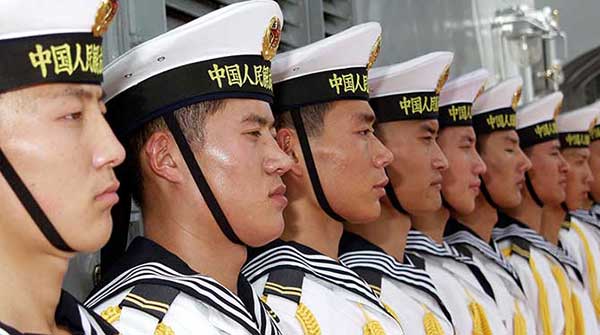The Biden administration has clearly signalled it wants a new Cold War in Asia
 Under pressure from big business, the Trudeau government has requested to join a U.S.-led China containment pact called the Indo-Pacific Economic Framework (IPEF). The move will significantly affect economic development, peace, and Canada’s foreign policy.
Under pressure from big business, the Trudeau government has requested to join a U.S.-led China containment pact called the Indo-Pacific Economic Framework (IPEF). The move will significantly affect economic development, peace, and Canada’s foreign policy.
The IPEF is the Biden administration’s alternative to the 11-country Trans-Pacific Partnership trade deal, which the Trump administration pulled out of in 2017 but which Canada is still a part of. Much more than that earlier deal, the IPEF is about “decoupling” U.S. supply chains from China.
The Biden administration has clearly signalled it wants a new Cold War in Asia. Talk of constructive cooperation with China in past national security strategies is gone. This year’s strategy describes a two-faced global threat to democracy from Russian imperialism and Chinese technological prowess.
 |
| Related Stories |
| Are we at risk of letting China dictate our Taiwan policy?
|
| Strategic procrastination is Canada’s preferred Indo-Pacific strategy
|
| Canada effectively absent in the Indo-Pacific |
This is a Sputnik moment for the United States. Fears of a shrinking military gap with China pervade the widening partisan divide on both sides, even as Pentagon spending continues to grow. The Chinese army doesn’t foresee parity with the U.S. before mid-century, and that dubious feat depends on China maintaining current growth levels, which is unlikely.
China’s outperformance of the United States in some areas – such as artificial intelligence, 5G, and renewable power – feeds U.S. paranoia but conveniently unites Democrats and Republicans behind America-first industrial policies, including large subsidies for battery and silicon chip manufacturers in recent U.S. legislation.
Biden’s domestic industrial strategy, which aims to re-shore high-tech supply chains currently dependent on China, will likely have spinoff benefits for Canada. It is also, deep down, a decent climate policy – in that a domestically built clean energy transition may be the only way to achieve broad public support for climate action and a just transition on this continent.
De-globalization – the shrinking and regionalization of supply chains – may also be an inevitable (and not necessarily bad) outcome of pandemic-related production failures and new climate realities. Still, legal restrictions on sharing high-tech goods and knowledge with China are needlessly punitive and will disrupt other Asia-Pacific nations with established Chinese supply chains.
Anti-China rhetoric also creates a witch-hunt-like atmosphere on Canadian university campuses and within research institutes, which are witnessing an exodus of Chinese-born talent to Asia and Europe. Nobody wins in this situation.
As dangerous as Biden’s new Cold War policy is, the U.S. Indo-Pacific strategy has some potential benefits over Canada’s free-trade-first approach in the region. For example, the IPEF’s more flexible economic cooperation commitments may encourage a mutual appreciation of economic conditions and development needs across different countries.
The Biden strategy is also overtly worker-centric, at least on the surface. The U.S. seems legitimately to want to create a new floor for wages and working conditions. Transparency and international coordination are essential conditions for cracking down on forced and child labour and for applying other due diligence checks on bad corporate behaviour.
That said, the IPEF continues to emphasize trade rules favouring U.S. tech giants, Big Pharma, banks, and unsustainable food commodities exports. The framework is about maintaining U.S. dominance, which will ratchet up geopolitical tensions in the region.
Canada is making efforts to endear itself to Asia-Pacific powers. It does not help Canada to be seen merely as a cheerleader for Cold War 2.0.
To be independent, Canada must be humble. Economically and politically, our influence with either China or the United States is no greater than that of many Asian-Pacific nations. We should acknowledge these similarities and emphasize non-aligned options for international cooperation focused on decarbonization, migration, public health, and improving labour rights and conditions in all parts of the world.
Stuart Trew is the director of the Trade and Investment Research Project at the Canadian Centre for Policy Alternatives.
For interview requests, click here.
The opinions expressed by our columnists and contributors are theirs alone and do not inherently or expressly reflect the views of our publication.
© Troy Media
Troy Media is an editorial content provider to media outlets and its own hosted community news outlets across Canada.


